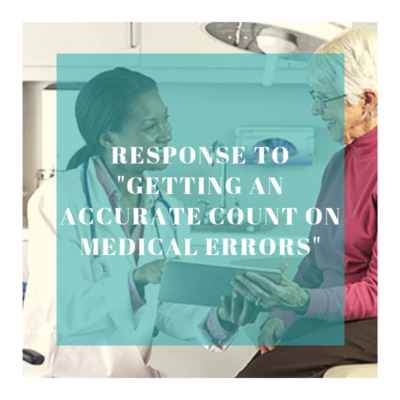Medical errors continue to be a detriment to patient safety and can lead not only to significant patient harm but patient death. Even though everyone agrees the focus should be on preventing the next error, the very complexity of the problem itself leads to confusion. For long term improvement to occur, we must address all elements of this enormous problem. After reading this editorial that discusses the definition of a medical error and what is the best process to collect data, review the comments below by one of our Inspirien Risk Management consultants who gives her perspective on this vast healthcare issue.
Click to read the original article: Getting an accurate count on medical errors
Just like internal reporting of medication errors, this information makes the point that our current method for monitoring and reporting medical errors depends vastly on the reporters or facility’s definition and compliance with recognizing when there is an incident and reporting ‘all’ incidents, so data trending is accurate. We all know there is a continued problem with the prevalence of medical errors, but where we put our focus determines how effective our approach is.
Although there is definitely a significance in having accurate data, we, as healthcare providers, would much better serve the patient if we focus on continuing to build a ‘safety net’ around the reporters so the fear or misunderstanding of what to report could be eliminated. Anything we do to build a preventive focus on patient safety instead of focusing on ‘do we have accurate medical error data’ only serves to improve the quality of care provided and should result in a decreased number of errors.
Instead of arguing this point, why don’t we focus on building a safety culture in every hospital and healthcare facility across the nation and work to implement best practices and consistent accountability for those processes? Doing this gives the ‘bedside caregiver’ the tools and initiative to actually be a part of the solution, instead of the problem. And, this is what the vast majority of healthcare professionals desire — to provide safe, effective care for their patients every day… not to get caught up in more data collection!
Article contributed by Debbie Franklin, Inspirien Risk Management Consultant.

